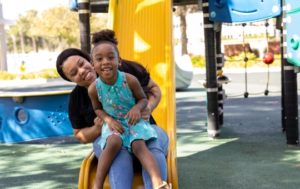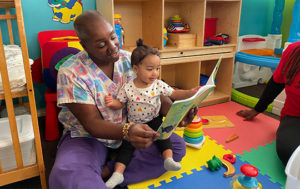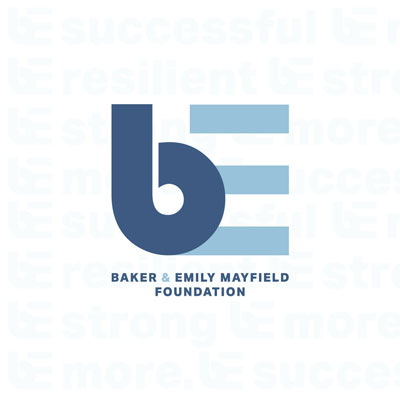Kindergarten Transition: Unprepared Anxiety
Months back I wrote about the importance of transitioning your child into kindergarten along with tips. I had my own child going into kindergarten after being in the Florida VPK program, he was also enrolled at a faith-based center full-time since the age of two. My child was outgoing at his center, he had many friends, the teachers loved his sweetness, and he was always happy when I picked him up. So, I was feeling confident in transitioning my child into kindergarten at our local public school, especially with all the knowledge I had working in early education and the resources I had access to.
My child’s transition to kindergarten looked like the following:
• Attending kindergarten roundup with my son
• Reading books about going to kindergarten
• Having discussions about his feelings and answering questions he had
• Touring his new aftercare program
• Weening off naptime
• Having conversations about how fun kindergarten is
• Attending orientation and meeting his new teachers
• Talking about car line and after school pick up
• Watching TV shows about going to school
• Signing him up for the sport he wanted to play
But to my surprise, my child did not adapt to the change very well. The first day of drop off went as expected, he was nervous and didn’t want to get out of the car, he wanted an extra huggie, he didn’t want me to leave, and the other cars were piling up behind me. They finally had to pick him out of the car and he was in tears and so was I. It felt like they ripped my baby away from me. It was traumatic for both of us. That first week of carline drop-off was tough on everyone but I figured it would get better.
But it got worse…
My son would shake in the car as we waited in the carline, his teeth would clatter, his stomach hurt, and he said his heart hurt. When it came time to get out of the car he would scream, wrap his arms around the back of the front passenger seat, and I would be instructed to drop him off at the office. It was so embarrassing, and I didn’t understand why this was happening. He would sit alone at his aftercare program waiting to be picked up. This continued for weeks, frustrating his father and me. We would bribe our child with things like, if you don’t cry today we’ll buy you a new toy. We made sticker charts, had conversations with him about what was bothering him, read children’s books about anxiety to him, practiced calming exercises, and I would even draw a star on both of our hands that he could press when he was feeling sad.
Nothing worked and I was feeling like a failure as a mother. I was beginning to show signs of frustration, anger, sadness, and worry all in one. I thought, how can this happen to my child, he’s used to being away from us all day. I had thoughts about how this would mentally affect him long term. I knew my son was hurting and I didn’t understand why, and I didn’t know how to make him feel safe and take his pain away. Trying to talk to him about how he was feeling was like trying to talk to a cat, he just couldn’t express himself in a way I could understand. I finally contacted the school counselor, I was desperate.
The public school counselor was a godsend. She told me it was perfectly normal for children of this age to go through the separation anxiety that my child was experiencing. It never really occurred to me that a child as young as him whose job in life is to have fun and learn would have ANXIETY.
So now we had to work through his anxiety and try to find out what fears he was having and how to ease him into feeling safe at school. The counselor worked out a plan with the front office, allowing my child to be dropped off there but we had to do our goodbye hugs and kisses at home. The principal even took my child under her wing and would let him hang out with her before class started, even bringing him to her staff meetings. The counselor made visits to his classroom and gave lessons to the class on social and emotional learning. The counselor scheduled frequent one-on-one sessions with my son during the week and gave him fidget toys to help distract him when he started to feel sad. The school staff was so supportive during this time. They even shared stories about their own children who had bad anxiety, and my co-workers were forthcoming with their stories and suggested resources I didn’t think of.
After a discussion with the school counselor, we figured out the main causes of his anxiety. A huge part of his anxiety was going from school to the aftercare program, thinking we would forget to pick him up. The other part, he was afraid for his safety. He had picked up on a recent school shooting and had to practice an active shooter drill at school, he thought something bad was going to happen to him in a place where he should feel most safe. My heart just broke in two when I heard this information but there was also a little relief because we knew how to better help him and work through his anxiety. Visiting the school resource officer was a huge part of making him feel safe. We now shifted our conversations at home to how safe school is, his job is to have fun, make friends, and how I wished I was in kindergarten again.
After a solid month of his tailored transition plan, my son was starting to be happy again, talking about school in a positive light, and making friends. We eased back into car line and celebrated with a cupcake, now he doesn’t even cry. When he shows signs of being nervous, I give him a quick pep talk and squeeze his hand three times (I Love You). He’s worked his way through his sticker chart, finally getting his dream prize, a pogo stick. And I had to get one too as a reward for making it through the toughest part of this journey with him. When a child suffers from anxiety it affects everyone in the household in some way, but we have to be strong and calm for our child/ren. If I took no part in kindergarten transition, I can only imagine how much worse this experience would have been for my child and me. Now in retrospect, I wish I would have asked the school at kindergarten roundup or orientation what resources were available to my child in case of transition issues.
No matter how much we do things by the book as parents, our children are still their own person and will throw you a parenting curve ball that may need extra support in navigating through. Don’t be afraid to open up to others about your experience, you would be surprised at how many people are going through or have gone through something similar to you. A local mom’s group on social media can be a great place to help get the emotional support that you need and tips for helping your child overcome their anxiety.
If you don’t know where to start with helping your child, starting with the resources at your child’s school is sometimes the best option, and usually free of charge. Because every child is so different, they may need different approaches in transitioning to something new and it’s ok if it’s not the cookie-cutter approach, but you need to be an advocate for them. The Early Learning Coalition of Hillsborough County is also a great community resource that can assist in getting your child the resources they need to live their best life.
Additional tips to help ease anxiety:
- Send a picture of you with your child in their book backpack for when they start missing you
- Keep a rough schedule of your child’s school day so they can cross off activities to do before seeing you again. (Example: morning circle, subjects, lunch, outdoor play, snack, after school program, home)
- Keep in communication with teacher and other support staff
Blog written by: Erica Turchin
Manager, Marketing & Resource Development at Early Learning Coalition of Hillsborough County





















